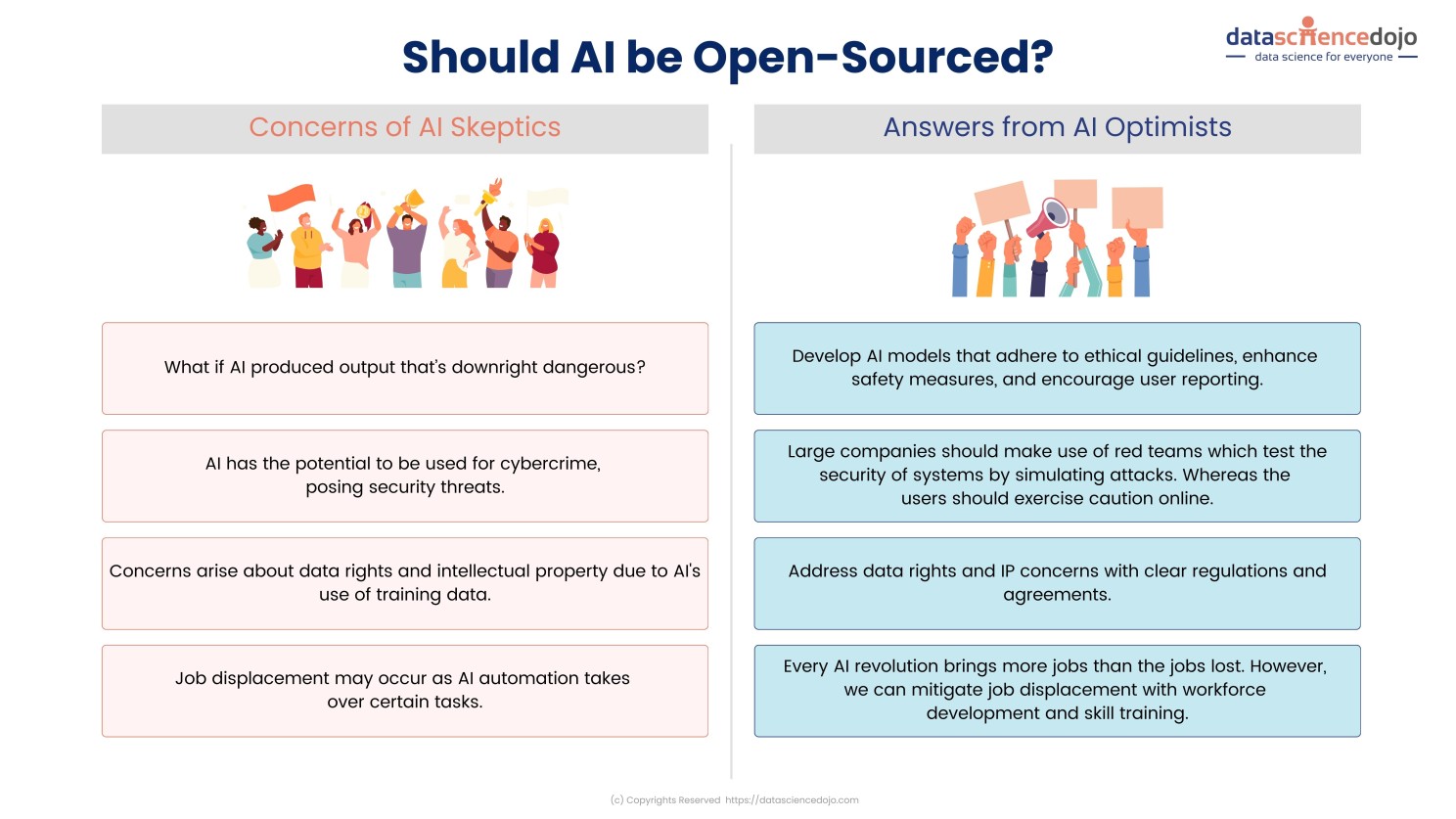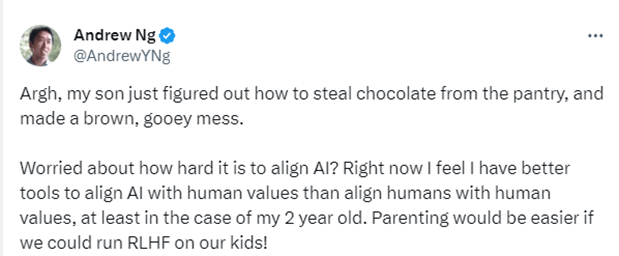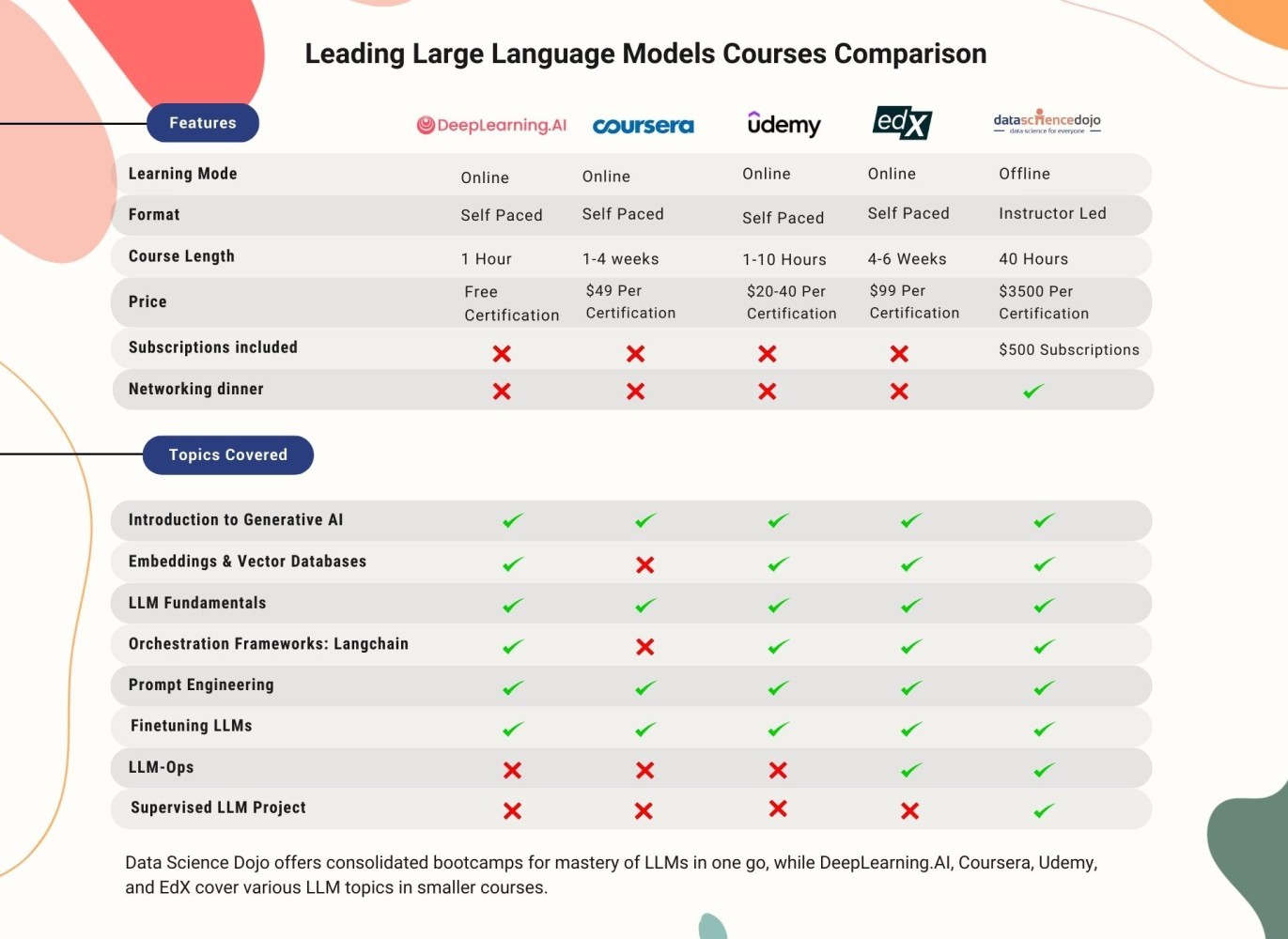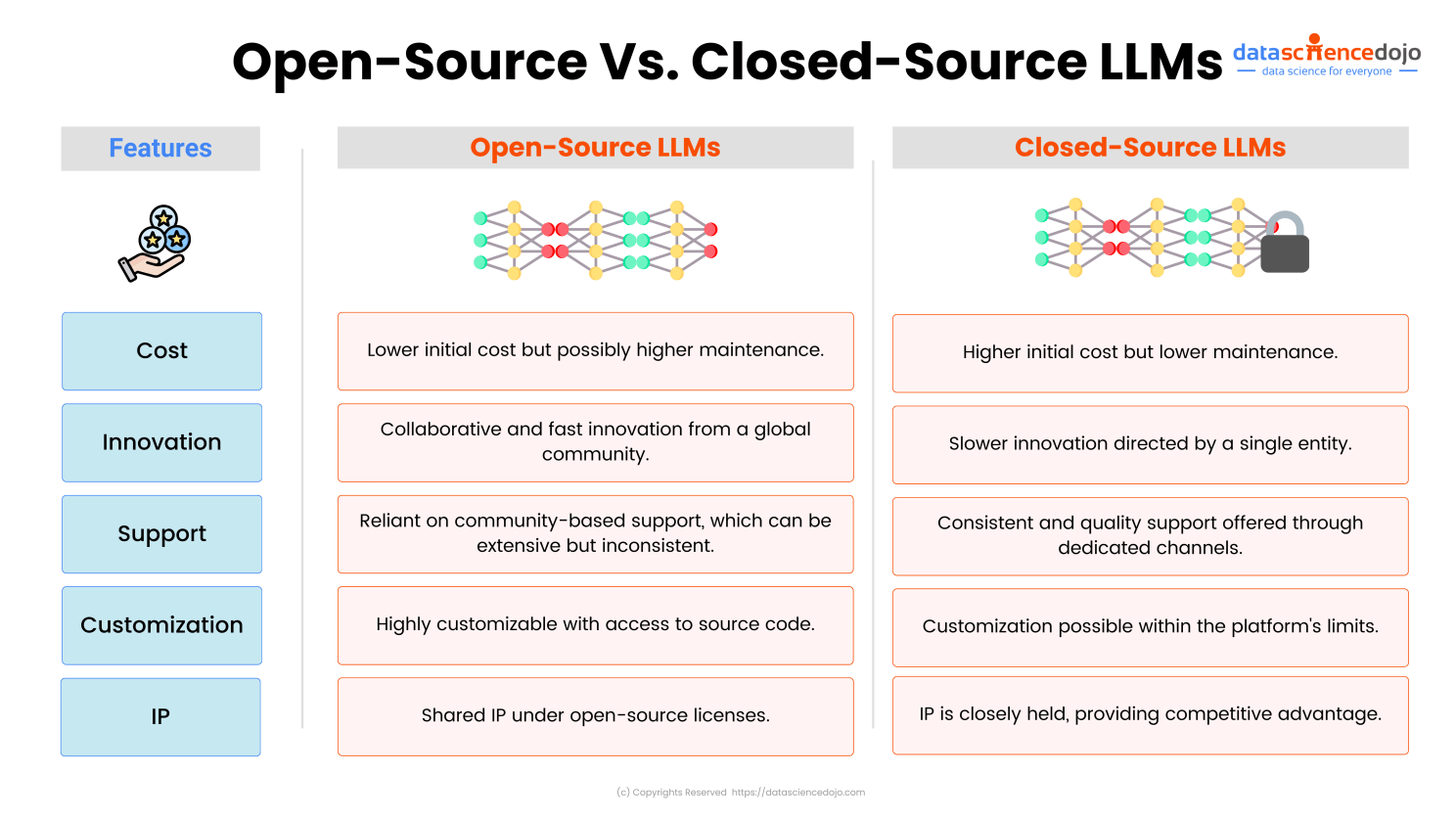Welcome to Data Science Dojo’s weekly newsletter, “The Data-Driven Dispatch”.
The rise of large language models has sparked a heated debate about whether open-source AI is a reliable option or we should prefer closed-source options.
- Advocates favor open-source AI because they anticipate substantial benefits for society. Companies like Meta, IBM, DeepLearning.AI, and more are supporting open-sourcing of LLMs.
- Proponents argue for proprietary control, relying on a selected group to manage these models due to potential risks. Companies like Google, OpenAI, and Microsoft, are at the forefront.
In a recent development, Hassabis, CEO of Google DeepMind, emphasized the urgent need for AI regulation. Potential issues at stake include spreading dangerous information, cyberattacks, loss of data, and more. (Read: Why You Should be Scared of Large Language Models)
However, on the other hand, we see a bunch of optimists who believe that not only these issues can be countered, but AI could be used to benefit the masses.
This debate is captivating, with both sides presenting valid arguments. We’d like you to join us as we explore each perspective and seek common ground.

First, Let’s begin with the mind-boggling advancements in generative AI this week.
1. OpenAI Announces GPT-4 Turbo with Vision:
OpenAI has released GPT-4 Turbo, an improved AI model with key features, including an extended knowledge cutoff until April 2023, a larger context window of 128k tokens, budget-friendly pricing, and a “with vision” variant for optical character recognition. Read more
2. OpenAI Introduces Custom AI Models (GPTs) for Tailored Solutions: OpenAI has introduced GPTs that allow users to create tailored AI models for specific tasks without requiring coding skills. GPTs can be used for various purposes, including learning board games, teaching math, or designing stickers. Example GPTs are available for ChatGPT Plus and Enterprise users, with a GPT Store set to launch soon for sharing creations publicly. Read more
3. Elon Musk debuts ‘Grok’ AI bot to rival ChatGPT, and Others: Elon Musk’s new AI venture, xAI, introduced its first AI chatbot, Grok, which aims to answer bold questions. The prototype is currently in a two-month training phase and is accessible to a limited group of users, with broader availability in the future. Grok is positioned as a competitor to companies like OpenAI, offering up-to-date information and some humor. Read more

Standpoint 1 – In Favour of Open-Source AI
Supporters of open-source AI strongly argue that it should be available to everyone. They believe that this will bring about positive societal changes, much like how education for all has propelled our progress as a society. They see AI as a tool that can supercharge individual skills and lead to thriving businesses and increased productivity.
Read: How generative AI will help increase productivity, creativity, and problem-solving across industries
Standpoint 2 – Proprietary Control: Safeguarding Against Unforeseen Dangers
Those in favor of proprietary control worry more about AI’s risks than its benefits. They fear AI might become too powerful, be used for harmful purposes, take people’s jobs, or spread false information. Their solution is to limit access to trusted companies, making them follow strict rules to ensure safe and responsible usage of AI.
It’s a cautious approach to avoid unexpected AI-related problems. However, it concentrates such a huge power in the hands of a few.
Let’s see how AI optimists are countering the burning questions from AI skeptics.

Open-Source AI Vs. Closed-Source AI
In terms of enterprise adoption, comparing open-source and closed-source large language models involves evaluating various factors such as costs, innovation pace, support, customization, and intellectual property rights.
Read more: Open-Source LLMs Vs Closed-Source LLMs for Enterprises

The Regulatory Capture
We are in the initial stages of AI. It is necessary that the system be built in a way that supports the overall benefits of the general public.
Listen up to this talk by Bill Gurley, as he talks about regulatory capture – a phenomenon where a special interest is prioritized over the general interests of the public. Understand how this phenomenon which has crushed competition in many industries poses a significant threat to AI as well.
To connect with LLM and Data Science Professionals, join our discord server now!

It’s amusing to see how we’ve started to draw parallels between humans and AI.


Start Your Career in the Leading Field of the Time
Large language models hold the power to revolutionize the world. According to McKinsey, generative AI will boost the global economy by up to $4.4 trillion annually.
Where to start? There are several important areas of Large Language Models that you should master. Read 9 essential domains to master LLMs to have a roadmap of where to start.
There are various courses and bootcamps that you can enroll in to start learning about these domains. Here are some leading courses:



